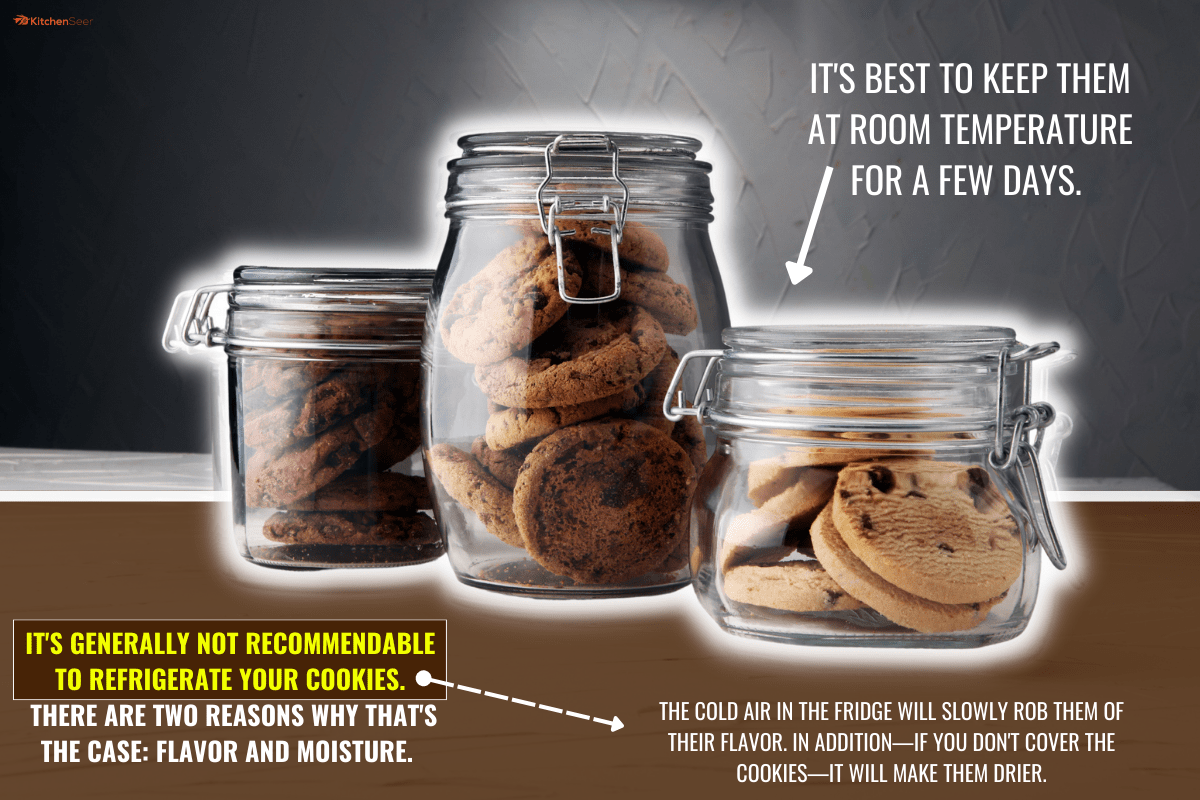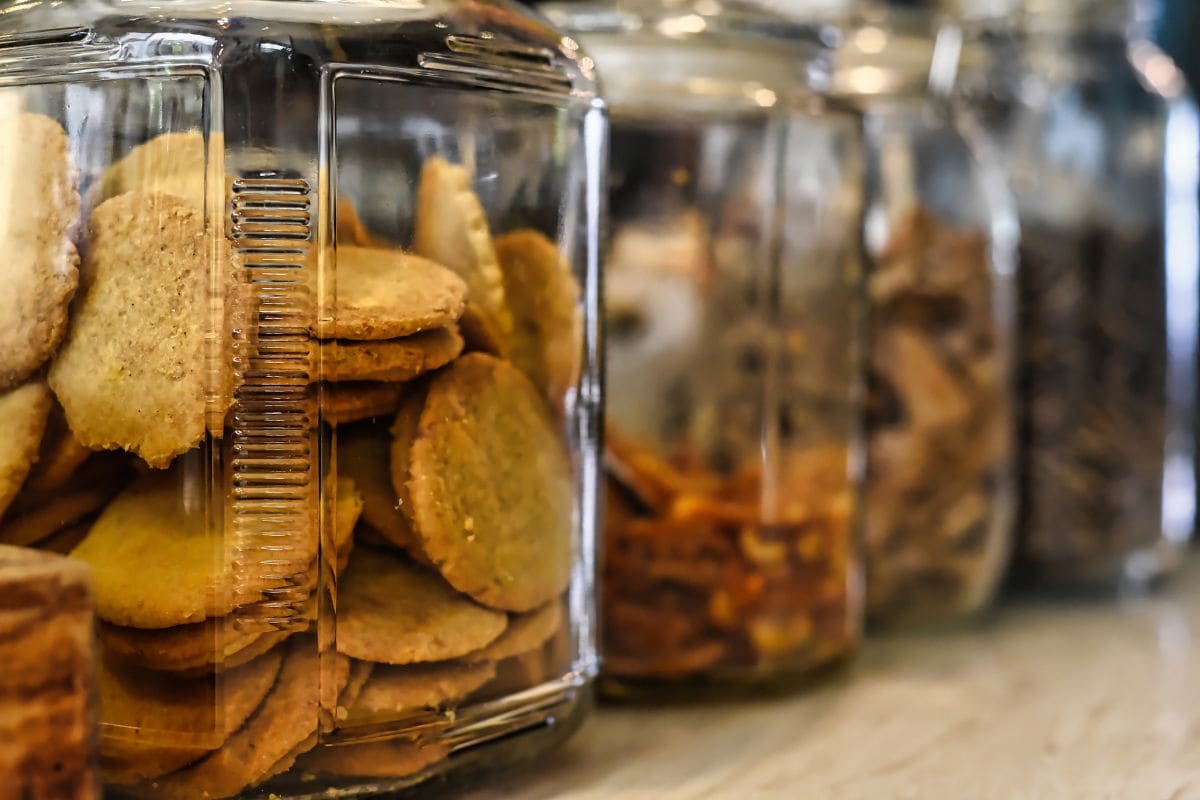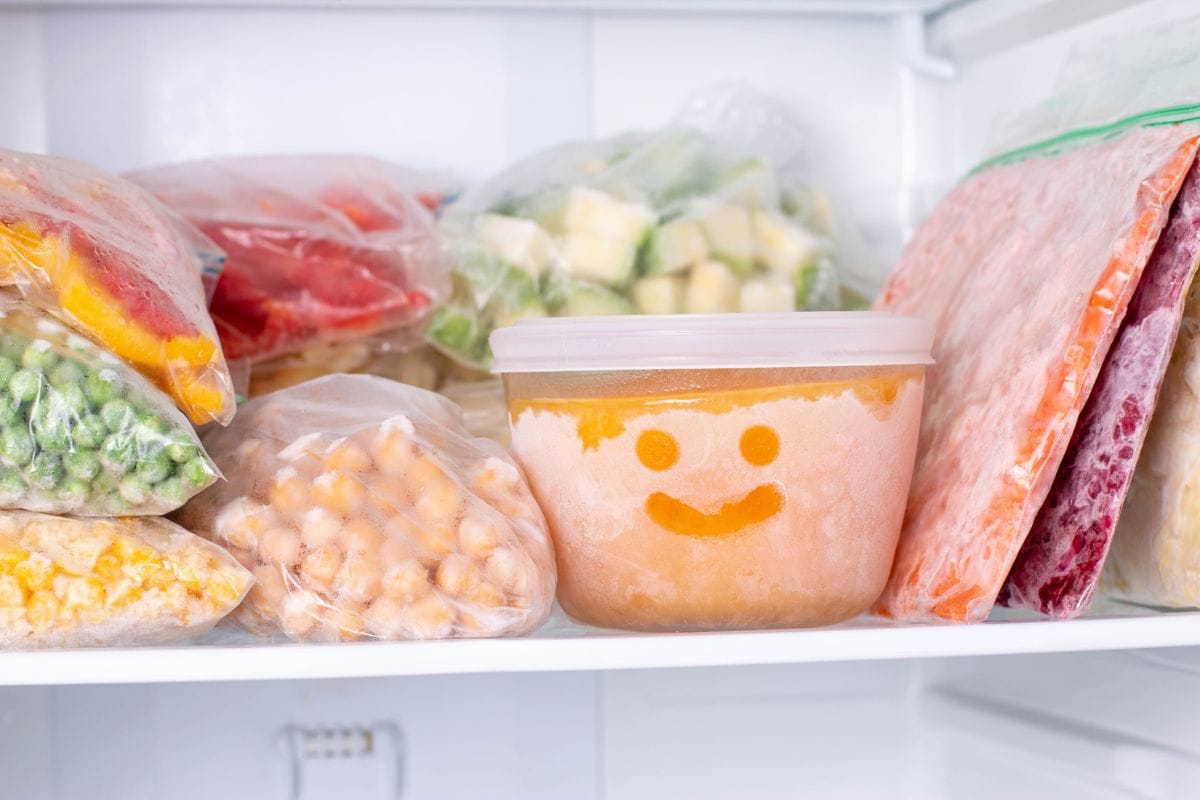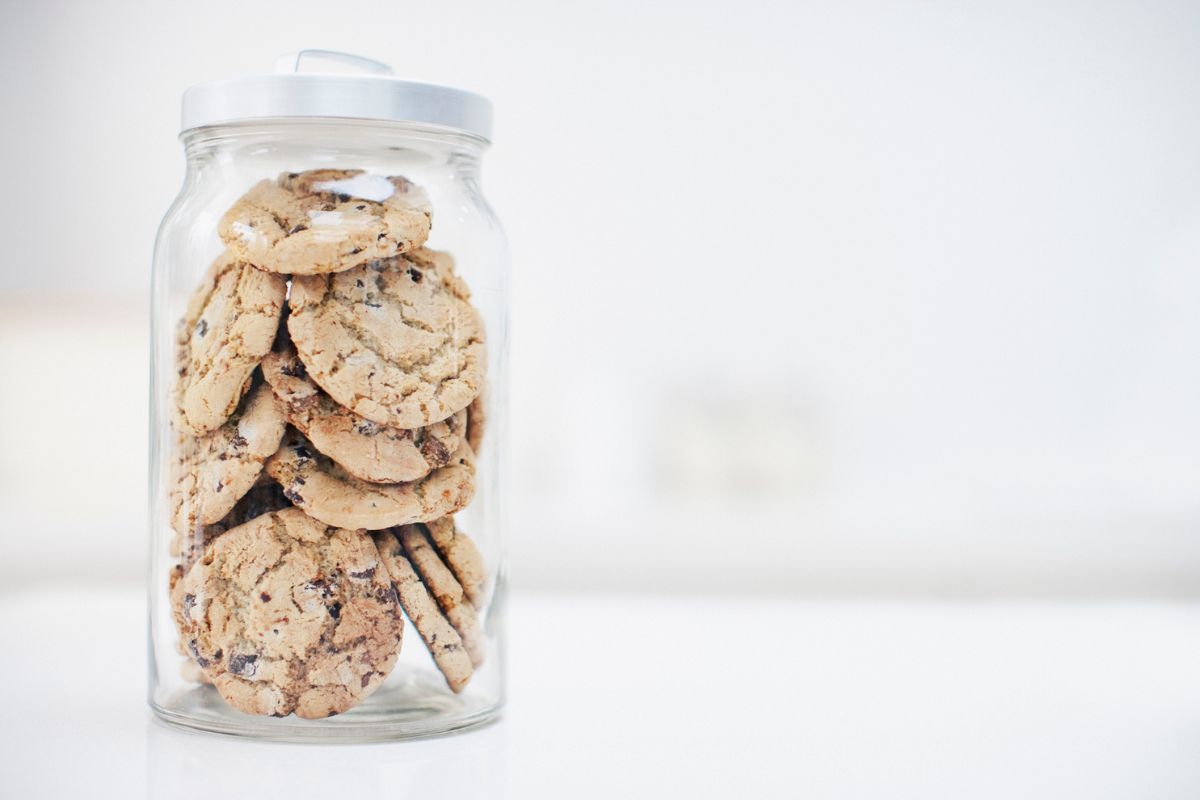Cookies are best when they're out of the oven or packaging. That's when their quality is at its peak. However, what if you want to preserve it for longer? Should you refrigerate them? If that's your concern, we've researched the topic to provide some answers.
It's generally not recommendable to refrigerate your cookies. There are two reasons why that's the case: flavor and moisture.
The cold air in the fridge will slowly rob them of their flavor. In addition—if you don't cover the cookies—it will make them drier.
It's best to keep them at room temperature for a few days.
Foods and snacks last longer when they're in the fridge. However, why do cookies become worse in quality there? There's some science at play here. Remember, the cold can do more than preserve items longer.
If you'd like to learn more on this topic, keep reading.

Cookies And Cold Air
There are two considerations to make when you're preserving food. Are you more concerned about making it last or retaining the quality? Most cookies should last about two months in the fridge.
However, the quality won't be the same. It becomes noticeable when you snack on it. The cookie's flavor will become stale over time, and it will be drier too.

It begs the question—why is that? As it turns out, cookies dry out because cold air pulls moisture away from foods. For this reason, any cookie won't do well texture-wise in the fridge.
As for the flavor? Cookies—starchy foods generally—will experience a process known as retrogradation in the fridge. It's something you might have experienced with bread.
Have you ever wondered why people avoid putting bread in the fridge? It's because of retrogradation. There isn't a way to stop it from happening, but you can slow it down.
What Is Retrogradation?
In short, starchy foods have a crystalline structure that breaks down during the baking process. As it absorbs water, it loses its clearly defined structure.
Once it begins to cool, starches will regroup. As a result, it becomes a more ordered crystalline structure again.
As the starch recrystallizes, it will expel the water absorbed in the baking process. This retrogradation and recrystallization of starch make baked goods like cookies and bread harden and grow stale.
The kicker here is certain temperatures accelerate this process. More precisely, temperatures around 40 degrees F—the temperature inside a fridge typically—make starchy foods recrystallize faster.
However, that's not to say cold air is always bad for starchy foods—more cold is actually better! Freezing the cookies will slow down retrogradation dramatically.
The Best Way To Store Cookies

Now we know what causes cookies to lose quality. We can use this information to plan accordingly. So, what if you want to store the cookies to eat about a few hours or days later?
If that's your goal, keep them in a sealed container at room temperature. However, some cookies rely on their moisture content more than others. In particular, chewy cookies need a way to keep the inside moist.
Otherwise, it's not going to be as good. You can retain the moisture content by including another item with moisture in the container. Yes, we're adding half of a slice of bread in there.
The slice of bread will give up its moisture for the greater good. So, if you have some cookies to spare, here's what you need to do:
- If you're storing fresh cookies, store them in a ziplock bag. Before you seal the bag, add half a slice of bread. Then, seal it and store it in a cookie jar.
- For store-bought cookies, you can keep them in the container with half a slice of bread. However, the container might not be as air-tight as a ziplock bag. So, consider transferring it over if you can.
Storing Cookies For The Long-Term

Let's assume a few days have passed, and the cookies are still uneaten. Should it continue in the ziplock bag? If you're planning to eat them soon, yes.
Otherwise, putting it in the freezer is the better option. Putting the cookies in the freezer will slow down retrogradation. So, the quality won't continue going down.
The process of storing it remains the same. Place the cookies in a freezer bag and label them. This way, you can remember how old and what it is.
Then, place the cookies in the freezer. According to the USDA, it can last eight to 12 months there. Once you're ready to eat them, take them out and let them defrost.
Reheating the Cookies
Once they're no longer frozen, reheat them in the oven at 300 degrees F for five to 10 minutes. It might need more or less time in the oven, depending on the type of cookie.
You can also use the microwave if you don't want to use the oven. Pop the cookies in there for 30 seconds to reheat. If they're drier than usual, wrap the cookies with a lightly moistened paper towel.
Reheat for 30 seconds, and they should be good to go.
How Long Can Cookies Last Unrefrigerated?

It's not often you find leftover cookies. If there's some to spare, you can use the tips above to keep them fresh for a while. However, it begs the question—how long can they last unrefrigerated?
A few days is a vague answer, but it's the truth. In terms of quality, cookies will taste the best for about one to three days, unrefrigerated. After three days, it's tough to say.
It all depends on the cookie. Some will probably taste and feel the same, while others might be more stale and crumbly. At most, keep the cookies at room temperature for five days.
After five days, it's recommendable to freeze them for another time.
Why Do My Cookies Get Hard Right After I Bake Them?
Nothing's more frustrating than soft cookies that go hard after you take them out of the oven. The softness is what we were chasing after! Why does it harden so quickly?
Part of it is retrogradation. However, cookies are not going to recrystallize that quickly. The reason it hardens quickly is because of the loss of moisture. Once you take the cookies out of the oven, the moisture in the cookies continues to evaporate.
Add retrogradation into the mix, and you get soft cookies that don't stay that way. As mentioned, you can't stop retrogradation or evaporation from happening.
How To Retain Moisture
However, there are some ways you can slow it down. The first way you can do it is by switching ingredients. For example, use brown sugar in place of white sugar.
Brown sugar contains molasses, which makes it retain more moisture than white sugar. If you don't want to use brown sugar, you might need to add an ingredient.
More specifically, corn syrup can save the day in this case. Corn syrup is helpful because it stays liquid at room temperature. So, it will help your cookies stay chewy for longer.
The third way to keep them moist is by underbaking the cookies. So, take them out a minute or two sooner than the recipe calls for. Then, store them as soon as you can.
Do Cookie Tins Keep Cookies Fresh?
Click here to see these cookie tins on Amazon.
Some cookies may come in a tin container. It looks beautiful, and it keeps them in a safe spot. However, are they the best container for your cookies?
As long as there's a tight seal, it should be. Other containers—like cookie jars—aren't as air-tight. For this reason, you're better off storing them in a ziplock bag.
Why Do Cookies Turn Soft Next Day?
Retaining a cookie's quality is as easy as maintaining its moisture content. However, moisture can also be the enemy. Have you ever stored cookies only for them to turn softer than before?
Mushier cookies are a result of having too much moisture in the container. For this reason, most recommend only putting half a slice of bread in there. If you go overboard with it, you're adding too much.
Slices of bread are moister than cookies. They might not look like it, but they are. If you've added too many bread slices in hopes of making them last longer at room temperature, now you know why you should avoid that.
That's not to mention the danger of promoting mold growth.
In Closing
Cookies are a delightful treat; making them last isn't as simple as putting them in the refrigerator. As we've found, it makes the quality worse. In any case, we hope you found this informative.
Before you go, do you have other storage concerns? Are you wondering if peanut butter needs refrigeration? To learn more, check out:
Do Peanut Butter Sandwiches Need To Be Refrigerated?
Here are other topics you can explore.
Does A Quiche Have To Be Refrigerated?
Does Almond Butter Need To Be Refrigerated? [Before And After Opening]


![Chocolate cookies in a glass jars, Do Cookie Jars Keep Cookies Fresh? [Inc. special tips]](https://kitchenseer.com/wp-content/uploads/2020/08/Chocolate-cookies-in-a-glass-jar-250x250.jpg)



![Huge cookie jars lined up at a bar table of a coffee shop, How To Make A Cookie Jar Airtight [The Key To Keeping Cookies Fresh!]](https://kitchenseer.com/wp-content/uploads/2021/03/Huge-cookie-jars-line-up-at-a-bar-table-of-a-coffee-shop-250x250.jpg)
